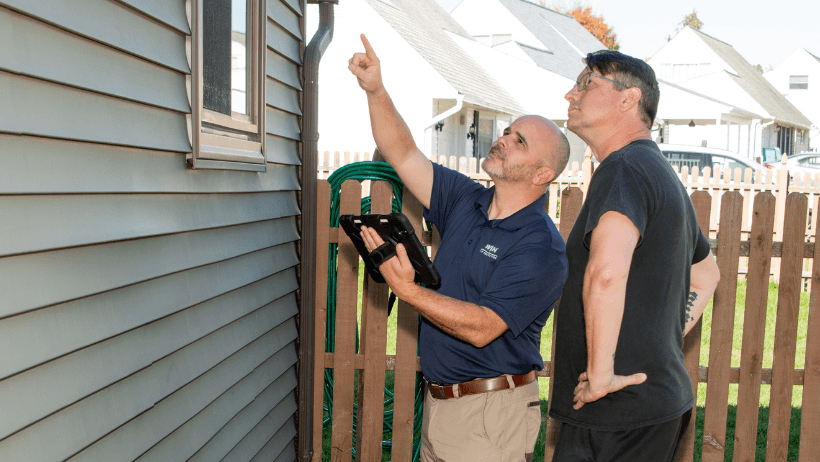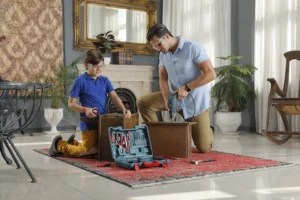A home is more than just a place to live; it’s a long-term investment, a place of comfort, and a reflection of your lifestyle. Just as a car needs regular maintenance, your home needs regular care if you want it to remain safe, functional, and valuable. Home inspections and upgrades are crucial for maintaining your home’s value, preventing costly repairs, and ensuring everyone’s safety. Many people only take these steps when problems become inevitable. By conducting regular home inspections and upgrades, you can protect your home, save money, and make it a healthy place for your family to live.
Why Inspections Matter
A home inspection examines all of your home’s systems, structure, and safety features. Regular inspections can help you uncover hidden hazards before they become costly and potentially harmful. For example, a leak behind a wall can go unnoticed until it damages the structure and promotes mold growth. Similarly, a minor electrical problem can cause a fire if not addressed quickly.
Inspections not only prevent tragedies but also ensure you comply with building codes. Many insurance companies even require you to review your policy regularly to ensure it’s still legal. By identifying potential risks early, homeowners can plan necessary repairs and avoid unexpected financial problems.
Family Safety
Regular home inspections are crucial for ensuring the safety of all residents. Unnoticed problems with water, heating, and electrical wiring can quickly become life-threatening. Professional inspectors look for potential hazards, such as faulty wiring, gas leaks, and unstable roofs.
These safety inspections are even more important for homes with children or elderly residents. Accidents are more likely to occur due to simple problems like a loose fence or uneven flooring. Regular inspections prevent these problems, keeping your family safe and giving you peace of mind.
Protecting Property Value
Buying a home is often the most expensive purchase people make. Regular inspections and upgrades can protect your investment. If you’re looking to sell your home, a well-maintained house will stand out on the market. People are more likely to pay a premium for a house that doesn’t need immediate repairs or changes.
Even if you don’t plan on selling your house anytime soon, improvements like energy-efficient windows, new appliances, or a renovated kitchen can increase your home’s value and improve your quality of life. These changes are financially beneficial by reducing maintenance costs in the long run.
Preventive Maintenance
As we all know, prevention is always better than cure. This also applies to your home. Ignoring minor problems can quickly lead to costly repairs. A cracked roof tile may not seem like a big deal, but it can cause water damage and mold growth, costing thousands of dollars in repairs.
Regular inspections can help you detect problems like leaks, pest infestations, or poor insulation early on. Small, inexpensive repairs now can save you a fortune later. Furthermore, energy-efficient systems, such as replacing an old heating, ventilation, and air conditioning (HVAC) system, can significantly reduce your monthly bills, saving you money in the long run.
Comfort & Efficiency
Upgrades and renovations can not only prevent problems but also improve your daily life. Modern homes are equipped with smart technology, eco-friendly products, and energy-saving methods. These changes not only make your home more comfortable but also contribute to the environment.
For example, improving your home’s insulation can keep it warmer in the winter and cooler in the summer, so you need to use your heating and cooling less often. Smart heating and energy-saving gadgets can lower your energy bills and simplify daily tasks. Investing in these improvements can make your life more comfortable and last longer.
Extending Home Lifespan
Like everything, homes age over time. Without proper maintenance, materials deteriorate, craftsmanship loses its functionality, and the entire structure becomes brittle. Regular inspections can detect wear and tear early, prevent irreparable damage, and extend the life of your home.
Improvements to your home can also extend its lifespan. Replacing old wiring, updating the electrical system, or strengthening your home’s foundation will keep it safe for years to come.
FAQs on Home Inspections
-
Is a home inspection only necessary when buying or selling a home?
No. While inspections are necessary when buying or selling a home, they are also very important for people who already own a home. Regular inspections contribute to the safety, efficiency, and value of your home. -
Which parts of a home should be inspected most often?
The roof, plumbing, electrical system, heating, ventilation, and air conditioning (HVAC), and structural stability are among the most important. These components are more susceptible to hidden hazards that can lead to serious problems. -
Do home improvements really increase its value?
Yes, changes like a new kitchen, energy-efficient windows, and upgraded bathrooms can significantly increase a home’s value. They can also make your home more attractive to potential buyers. -
Is a professional inspection worthwhile?
Of course. Inspections are expensive, but they can often save people thousands of euros by detecting problems early. The long-term benefits far outweigh the initial costs.
Summary
Regularly renovating and inspecting your home is more than just maintenance; it protects your investment, ensures your safety, and improves your quality of life. The benefits are clear: minor problems are detected early, and the value of your property increases through ongoing renovations. Preventative maintenance can keep your property in good condition and save you money in the long run.
As a landlord, you can ensure that your property remains safe, comfortable, and functional for years to come through regular inspections and renovations. Investing time and money in maintaining your property will ultimately pay off in safety, savings, and peace of mind.



